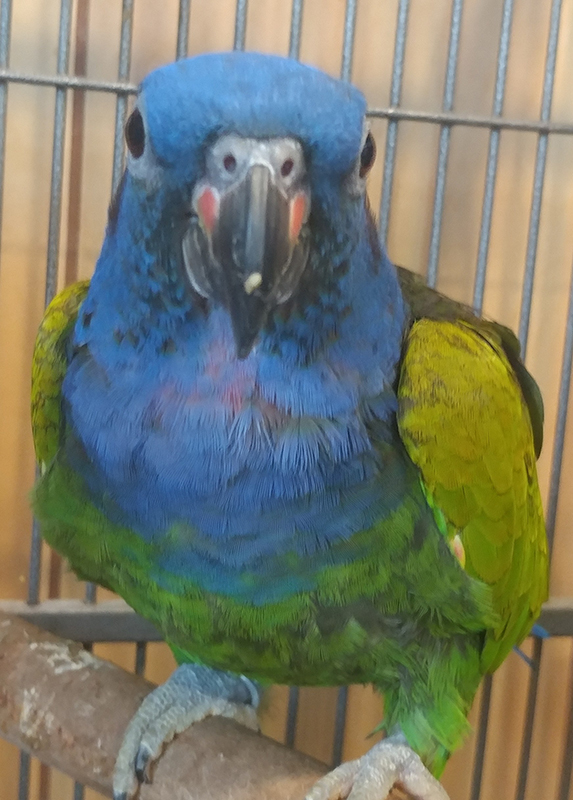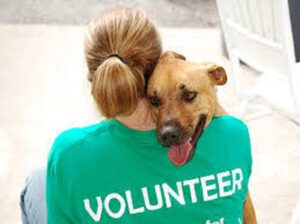Key Takeaways
-
Blue-Headed Pionus parrots are affectionate, relatively quiet pets that can live up to 40 years with proper care.
-
Adopting from a reputable source is crucial, and costs can range from $200 to over $1,000.
-
They require a balanced diet, regular vet checkups, and a stimulating environment.
-
These birds are known for their friendly nature, but like any pet, they require socialization and training.
-
While not the most talkative species, Blue-Headed Pionus can learn words and phrases with patience and practice.
Welcome to the World of Blue-Headed Pionus
So, you’re considering adopting a Blue-Headed Pionus? That’s a fantastic choice! These parrots are cherished for their beauty and engaging personalities. However, as with any pet, adopting a Blue-Headed Pionus comes with responsibilities. I’ll walk you through what you need to know to make an informed decision, provide the best care, and ensure a happy life for both you and your feathered friend.

“Adoptable Birds-Riley” from birdsofparadise.org and used with no modifications.
What Makes a Blue-Headed Pionus Special?
The Blue-Headed Pionus, with its vibrant blue head and green body, isn’t just striking in appearance. They are known for their calm demeanor, making them suitable for families and individuals alike. These birds are social creatures that form strong bonds with their owners. While they enjoy interaction, they’re also independent enough to entertain themselves with toys when you’re not around.
Cost Expectations for Prospective Owners
Before you get your heart set on one of these beauties, let’s talk numbers. The initial cost to adopt a Blue-Headed Pionus can be quite a range, typically from $200 to over $1,000, depending on the bird’s age, health, and where you’re adopting from. But the investment doesn’t stop there. You’ll need to consider the cost of a cage, toys, food, and vet care. The cage, for instance, should be spacious enough for them to spread their wings and sturdy enough to withstand their beak; this can set you back $100 to $300. And don’t forget the ongoing costs, like high-quality pellets and fresh produce for their diet, which can average around $30 to $50 a month.
Adoption Centers and Reputable Sources
When you’re ready to bring a Blue-Headed Pionus into your life, it’s important to find a bird from a reputable source. This could be a specialized avian rescue, a reputable breeder, or sometimes, an individual who can no longer care for their pet. No matter where you choose to adopt from, do your homework. A healthy bird should be alert, active, and have bright, clear eyes. It’s also a good idea to ask for a health guarantee and any medical history the bird may have.
Finding a Trustworthy Rescue Group or Shelter
Rescue groups and shelters can be great places to find a Blue-Headed Pionus in need of a loving home. When you go this route, you’re not only giving a bird a second chance, but you’re also more likely to find honest assessments of the bird’s health and temperament. Make sure the organization is transparent about their adoption process and willing to provide post-adoption support.
Pre-Adoption Checklist
-
Research the needs and habits of Blue-Headed Pionus parrots.
-
Ensure you have enough space for a large cage and a safe play area.
-
Plan for a diet that includes pellets, seeds, and fresh fruits and vegetables.
-
Find an avian veterinarian in your area for regular check-ups.
-
Consider the long-term commitment: Pionus parrots can live for many decades.
Caring for Your Blue-Headed Pionus
Daily Care Essentials
Once your Blue-Headed Pionus is home, daily care is essential for its well-being. This includes providing fresh water and food, cleaning the cage, and allowing out-of-cage time for exercise. Also, pay attention to their feathers; regular misting or bathing helps keep their plumage in good condition.
The Pionus Diet: Nourishing Your Feathered Friend
A balanced diet is crucial for your Blue-Headed Pionus. A combination of high-quality pellets, fresh fruits, and vegetables should make up the bulk of their diet. Occasional treats, like nuts and seeds, are also appreciated but should be given in moderation due to their high fat content.
Creating a Safe and Stimulating Environment
Your Pionus will need more than just a cage. They thrive in environments that challenge their intelligence. Toys that encourage foraging and problem-solving will keep your bird mentally stimulated and prevent boredom. Just make sure the toys are safe and free of toxic materials.
Temperament and Interaction
Are Blue-Headed Pionus Friendly Companions?
Generally speaking, Blue-Headed Pionus parrots are known for their gentle and affectionate nature. They tend to form strong bonds with their caretakers and can be quite sociable. However, like all parrots, they require socialization from a young age to ensure they remain friendly and well-adjusted pets.
Dealing with Potential Aggressiveness
It’s rare, but sometimes a Blue-Headed Pionus may exhibit signs of aggressiveness. This can often be a result of fear, a lack of socialization, or territorial behavior. To mitigate this, handle your bird regularly and provide a consistent routine, which can help build trust and reduce anxiety.
Communication and Speech Ability
Do Blue-Headed Pionus Parrots Talk?
While they’re not known to be the chattiest of parrots, Blue-Headed Pionus can learn to speak a few words and phrases. However, their speech is often not as clear as some other parrot species. Instead, they may communicate with a variety of whistles and sounds that can become quite endearing.
Fostering Vocalization and Bonding through Training
Training your Blue-Headed Pionus to speak takes patience and repetition. Start with simple words and phrases, and use them consistently. Remember to reward any attempts at speech to encourage further vocalization. Training sessions also serve as a great bonding opportunity and can strengthen your relationship with your bird.
Lifespan and Long-Term Commitment
Understanding the Pionus’ Longevity
One of the most remarkable aspects of the Blue-Headed Pionus is its potential lifespan. With proper care, these birds can live up to 40 years or more. This longevity means that adopting a Pionus is a long-term commitment that should not be taken lightly.
Continual Care through the Years
As your Blue-Headed Pionus ages, its needs may change. Regular veterinary check-ups become increasingly important to monitor for age-related health issues. Additionally, you’ll need to continue providing a stimulating environment and a balanced diet to maintain your bird’s quality of life throughout its years.
FAQ
What are the signs of a healthy Blue-Headed Pionus?
A healthy Blue-Headed Pionus will be active and alert with bright, clear eyes and smooth feathers. They should have a good appetite and regular droppings. Watch for any signs of lethargy, ruffled feathers, changes in eating or bathroom habits, or discharge from the eyes or nostrils, as these can be signs of illness. For more detailed information on the care of these birds, consider reading this Blue Headed Pionus species profile.
How do Blue-Headed Pionus typically interact with children and other pets?
Blue-Headed Pionus parrots can get along well with children and other pets if properly socialized from a young age. However, interactions should always be supervised to ensure the safety of both the bird and the child or pet. Teach children how to gently handle and respect the bird, and make sure other pets are calm and non-aggressive around the Pionus.
Example: If you have a cat or dog, introduce them to the Blue-Headed Pionus slowly and in a controlled environment, always monitoring their reactions to prevent any potential harm.
Are there any specific legal considerations when adopting a Blue-Headed Pionus?
When adopting a Blue-Headed Pionus, it’s important to ensure that you are in compliance with local and federal laws regarding exotic pet ownership. Some areas may require permits or have restrictions on certain species. Always verify the legal requirements in your area before bringing a Blue-Headed Pionus into your home.


